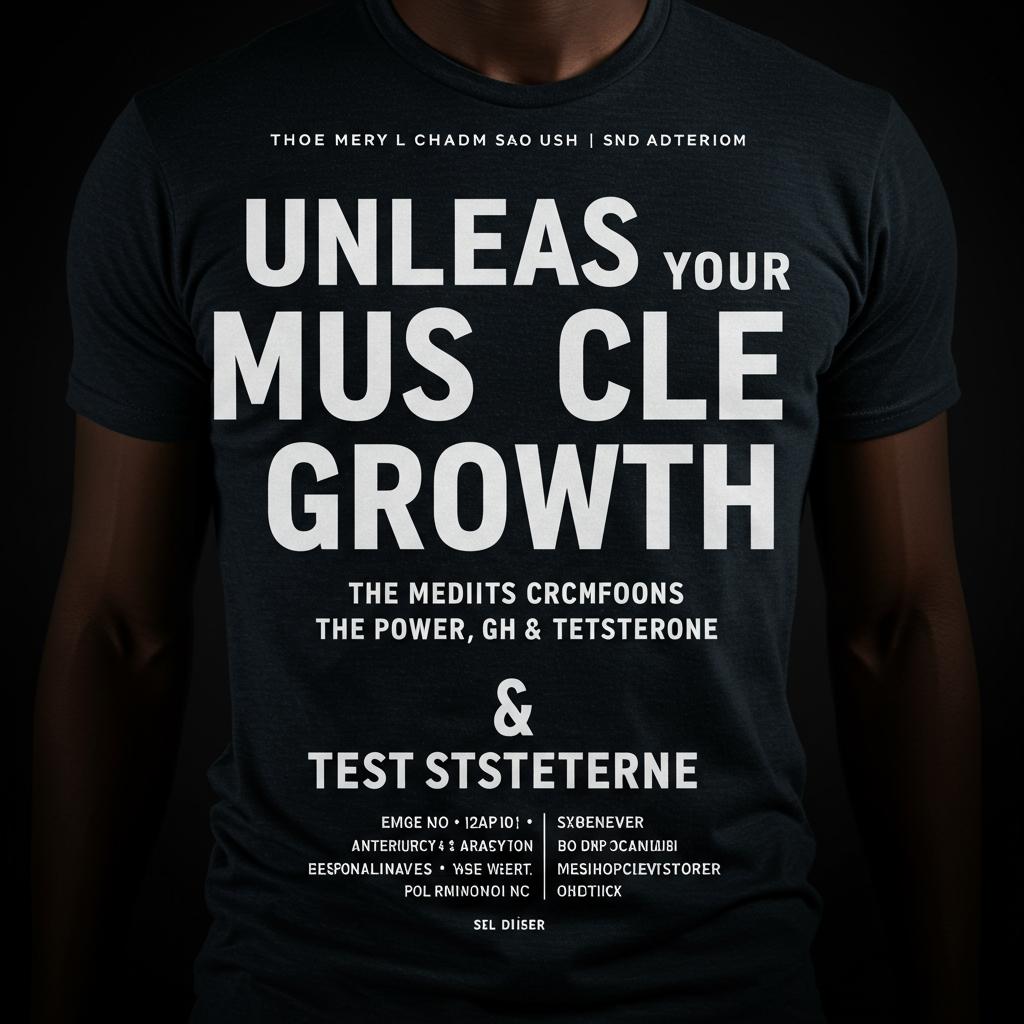
Ever notice how it seems harder to build muscle as you get older? Or perhaps you’ve heard about muscle loss associated with illness or injury. This isn’t just about aesthetics; maintaining healthy skeletal muscle is crucial for overall health and well-being. Let’s dive into the fascinating world of muscle growth and breakdown, and explore the roles of two key hormones: growth hormone and testosterone.
Our bodies are constantly in a state of flux, breaking down and rebuilding muscle tissue. This dynamic process is influenced by a multitude of factors, including our age, activity levels, nutrition, and hormonal balance. Understanding how these factors interact can help us maintain muscle mass and prevent its decline.
- The Importance of Skeletal Muscle: Skeletal muscle isn’t just for athletes; it plays a vital role in everyday life. It supports our movement, posture, and stability. It also contributes to our metabolism, helps regulate blood sugar, and even plays a role in immune function. Losing muscle mass can negatively impact all these areas.
- The Science of Muscle Growth and Breakdown: Think of your muscles like a construction site. Protein synthesis is the building process, where new muscle proteins are created. Protein degradation, on the other hand, is the demolition crew, breaking down existing proteins. The balance between these two processes determines whether we gain, maintain, or lose muscle mass.
- Growth Hormone: The Muscle Builder: Growth hormone, often associated with childhood development, also plays a vital role in adult muscle health. It promotes protein synthesis, the building of new muscle, and can even help reduce muscle breakdown. It’s like having a foreman on the construction site, ensuring things are built efficiently.
- Testosterone: The Strength Booster: Testosterone, primarily known as a male sex hormone, is also a crucial player in muscle development for both men and women. It stimulates protein synthesis and contributes to increased muscle strength and size. Think of testosterone as the heavy machinery on the construction site, providing the power needed for serious building.
- Age and Muscle Loss: As we age, our bodies naturally produce less growth hormone and testosterone. This hormonal shift, combined with decreased activity levels, can lead to age-related muscle loss, also known as sarcopenia. This highlights the importance of maintaining an active lifestyle and potentially exploring hormone-related therapies under the guidance of a healthcare professional.
- Chronic Disease and Muscle Loss: Certain chronic diseases, such as cancer, kidney disease, and HIV/AIDS, can also contribute to muscle loss. This can be due to a variety of factors, including inflammation, reduced appetite, and changes in hormone levels.
- Acute Injury and Muscle Loss: Muscle loss can also occur after an acute injury, such as a broken bone or muscle tear. Immobilization and reduced activity during recovery can contribute to muscle atrophy. Proper rehabilitation and physical therapy are essential to regain muscle mass and function.
Researchers are diligently studying the intricate mechanisms behind muscle growth and breakdown, particularly focusing on the roles of growth hormone and testosterone. These investigations are paving the way for new therapies to combat muscle loss associated with aging, chronic disease, and acute injury. By understanding the complex interplay of hormones and muscle function, we can work towards preserving muscle mass and maintaining overall health throughout our lives. If you’re concerned about muscle loss, consult with your doctor or a qualified healthcare professional to discuss your individual needs and explore potential treatment options.
